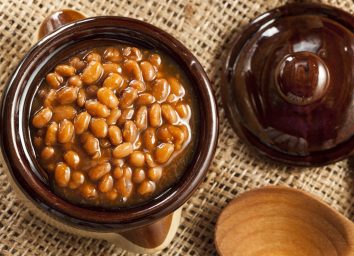What Happens to Your Body When You Eat Beans
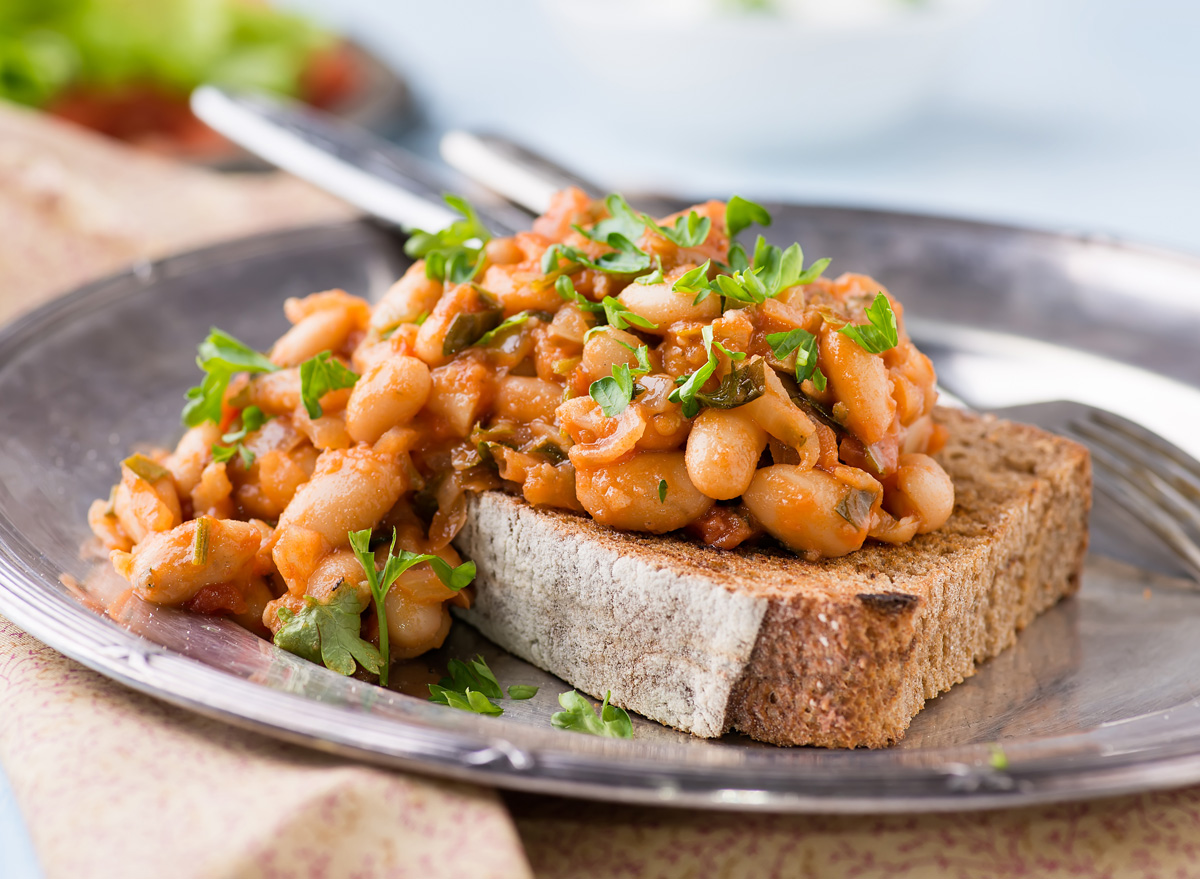
What’s not to love about beans? They give a burrito some heft, add texture to soups and stews, make a creamy base for dips, and give salads a hearty twist. Better yet, if you eat beans, they’re loaded with fiber and protein, so they can keep you full for hours while also keeping you regular—and they also happen to boast a bevy of health-promoting minerals.
“Beans are a great source of iron, magnesium, potassium, zinc, and folate,” says Michelle Zive, RD and NASM certified nutrition coach. “Our body uses iron to make the blood proteins of hemoglobin and myoglobin which help transport oxygen throughout the body. In addition, iron is a key nutrient for hormones and our connective tissues such as tendons and ligaments.”
The short-term consequences of eating beans are clear: you’ll feel satiated, and you’ll get a hefty dose of essential nutrients. But what happens to your body when you eat beans on a regular basis? Here’s what you need to know about the effects—both positive and negative. And for even more healthy tips, be sure to check out our list of The 7 Healthiest Foods to Eat Right Now.
Your gut health will improve.
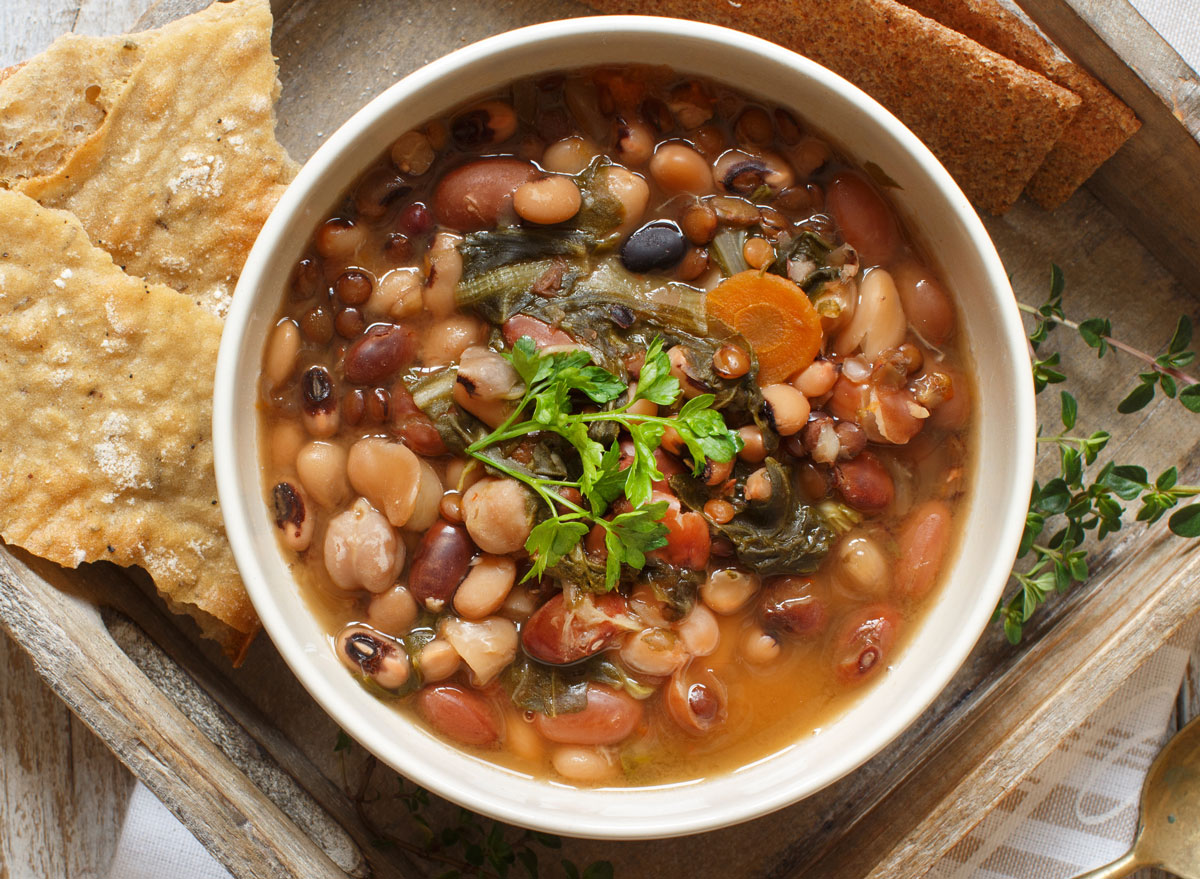
Probiotics aren’t the only way to improve your gut health. According to Zive, beans contain resistant starch—which, like fiber, is difficult to digest.
“The resistant starch moves throughout the GI Tract where it ends up in the large intestine,” she explains. “There, ‘healthy’ bacteria feed on it.”
By the way—these healthy gut bacteria support immune system function, thereby helping you to ward off illness.
Research has shown that lentils, in particular, can benefit gut health by improving bowel function and slowing down the rate at which your stomach empties out, thus helping to support digestion and preventing blood sugar spikes.
For some cooking inspiration, check out 17 Delicious Recipes Featuring a Simple Can of Beans.
You might experience some gas.
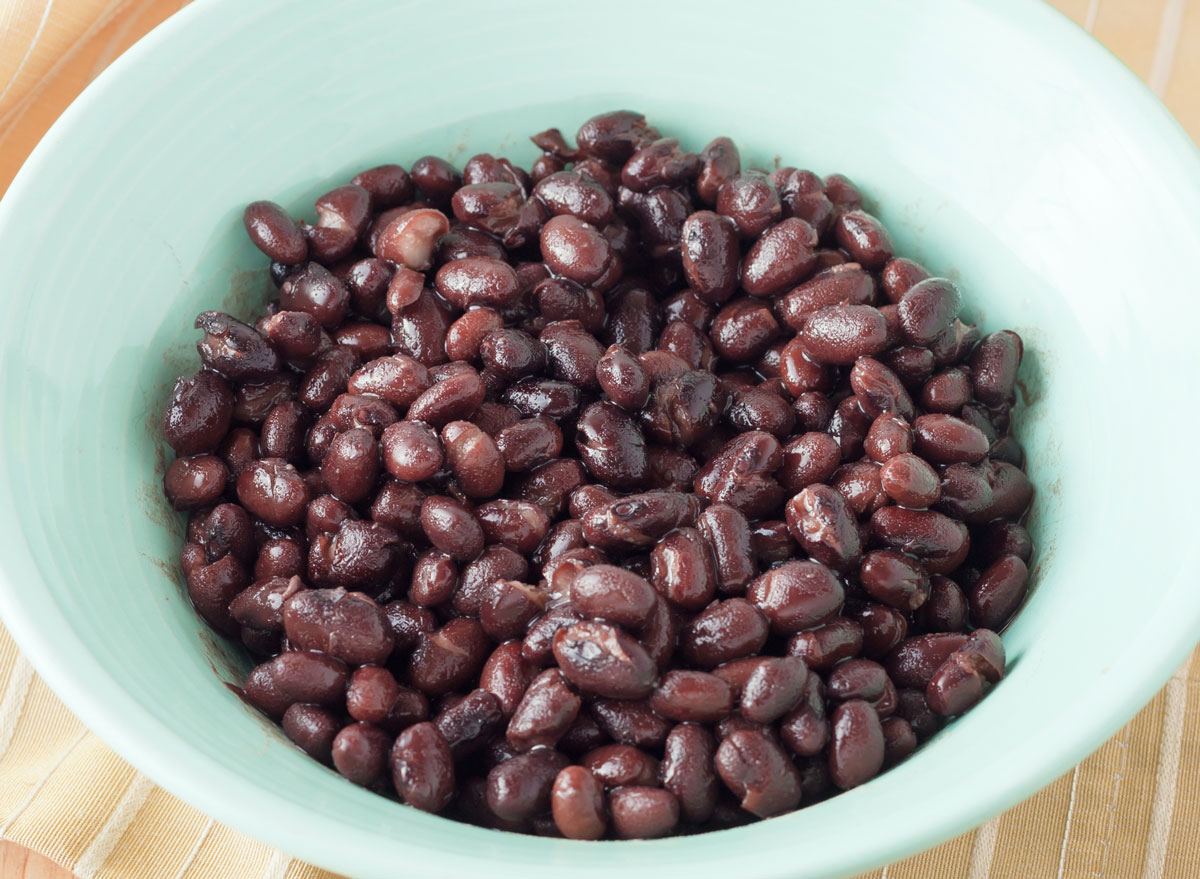
Remember the schoolyard rhyme about beans—”the musical fruit”—causing flatulence? Well, there’s some truth to that saying.
“Beans contain a high amount of complex sugar called Raffinose,” says Zive. “The body has a difficult time breaking this down, which causes gas. Additionally, as beans are high in fiber, they can cause gassiness and GI distress.”
The good news is that if you do experience gas, it’s likely only temporary, as your body adjusts to digesting more beans. A 2011 study published in Nutrition Journal found that a little less than half of the participants, who ate a half cup of either pinto or black beans every day for three weeks, reported increased flatulence in the first week. However, most of them noticed that this side effect had subsided by the third week.
If you’re just starting to eat beans regularly and you’re concerned about gas, Zive advises starting out with smaller amounts—like 1/3 or 1/2 a cup—and then gradually increasing to one cup from there.
“This allows the body to get used to digesting beans,” she adds.
Other ways to avoid gas include chewing the beans thoroughly, rinsing canned beans to get rid of excess fiber and sugar, and pre-soaking dry beans for 12 to 24 hours in water.
“The longer beans soak, the more likely that the gas-producing aspects will be reduced,” Zive explains.
Here are 14 High-Protein Beans—Ranked!
You could lose some weight.
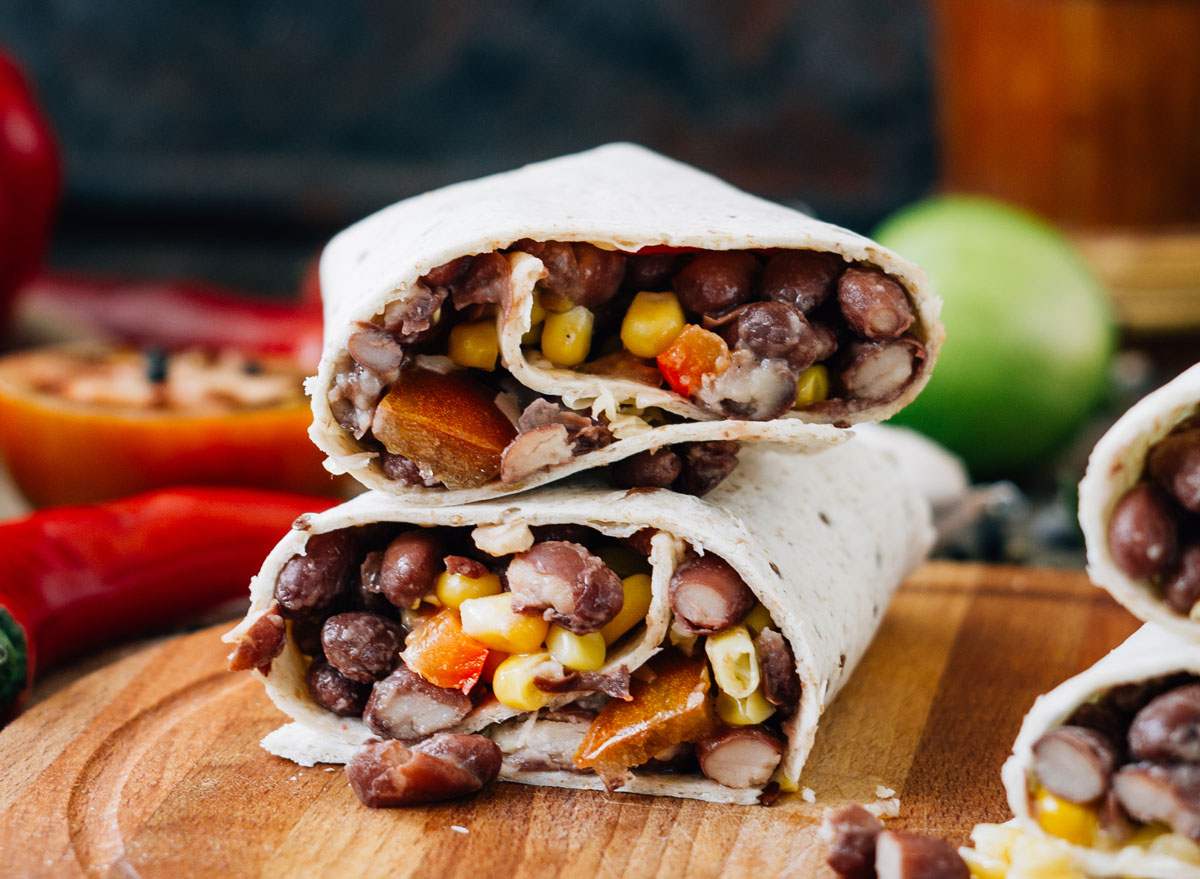
Beans are a phenomenal choice if you’re trying to shed some pounds—because they’re chock full of protein and fiber, both of which make you feel fuller for longer. In fact, Zive reports that 1 cup of cooked beans contains a whopping 12 grams of fiber and 15 grams of protein.
“High-fiber foods usually take longer to eat and tend to have fewer calories for the same volume of food,” adds Zive. “In other words, beans are energy-dense foods.”
According to Zive, beans with the highest fiber content include navy and white beans. So, what are you waiting for? Try tossing them into a salad, grain bowl, or wrap to curb hunger and cravings in between meals.
Get even more fiber into your meals with these 43 Best High-Fiber Foods For a Healthy Diet.
Your heart will be happy.
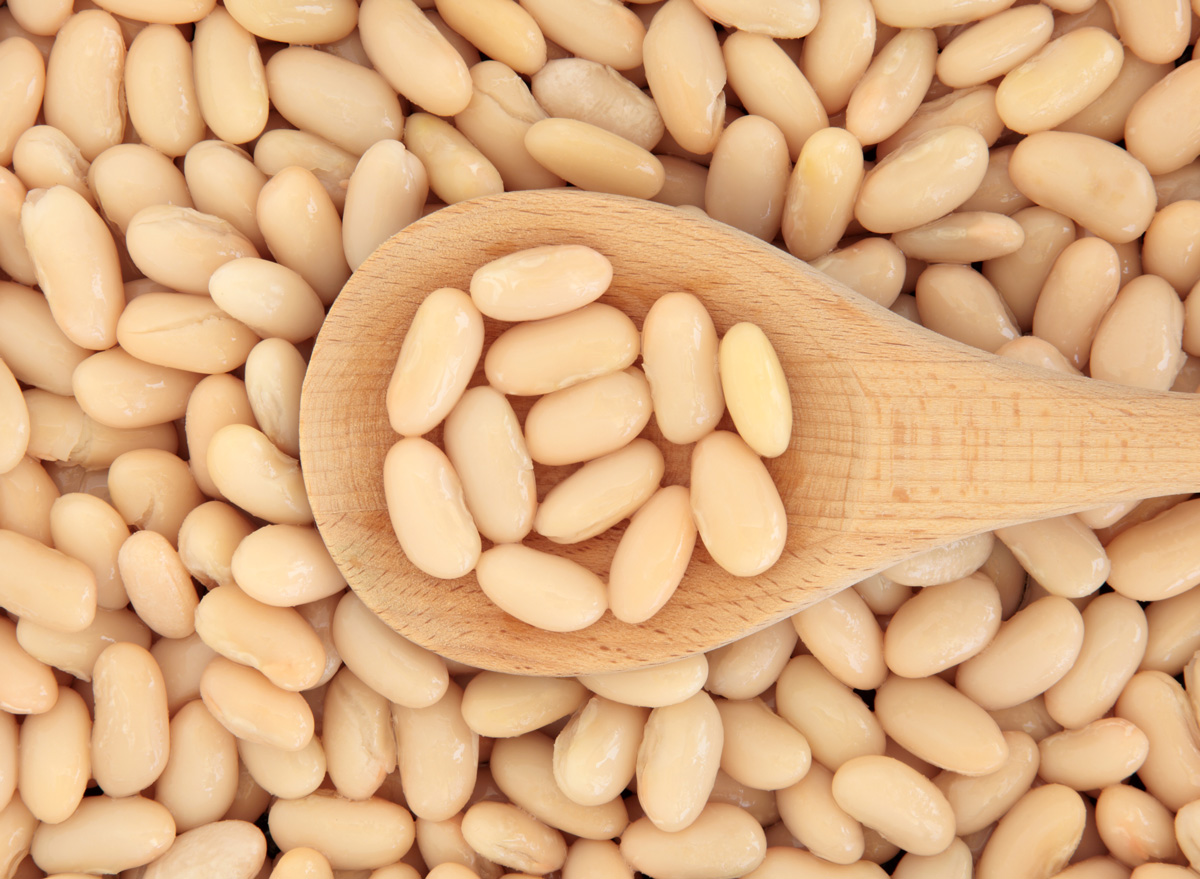
You’ve probably heard the old saying that beans are good for your heart—and it’s true, in part due to the fiber and folate content.
“Fiber lowers blood glucose levels and blood pressure, as well as helps aid in achieving a healthy weight,” explains Zive. “Folate is also good for heart health and the nervous system. A cup of pinto beans contains 300 micrograms of folate, which is three-quarters of the recommended daily amount.”
A 2013 study revealed that getting an additional 7 grams of fiber per day could significantly lower your risk of developing heart disease as well as cardiovascular disease. Meanwhile, a 2010 Japanese study published in the journal Stroke determined that higher consumption of folate was associated with fewer deaths from heart failure in men, and fewer deaths from stroke, heart disease, and total cardiovascular events in women.
Another reason beans are excellent for your ticker is that they can help to keep your blood pressure down. In fact, a 2014 analysis of eight studies found that participants who consumed about 1 cup of legumes every day for 10 weeks had a significant decrease in systolic blood pressure.
Not only that, but beans are excellent sources of magnesium and potassium, both of which have been proven to play a key role in cardiovascular health. Specifically, magnesium helps with blood pressure regulation, according to the National Institutes of Health.
Your cholesterol might improve.
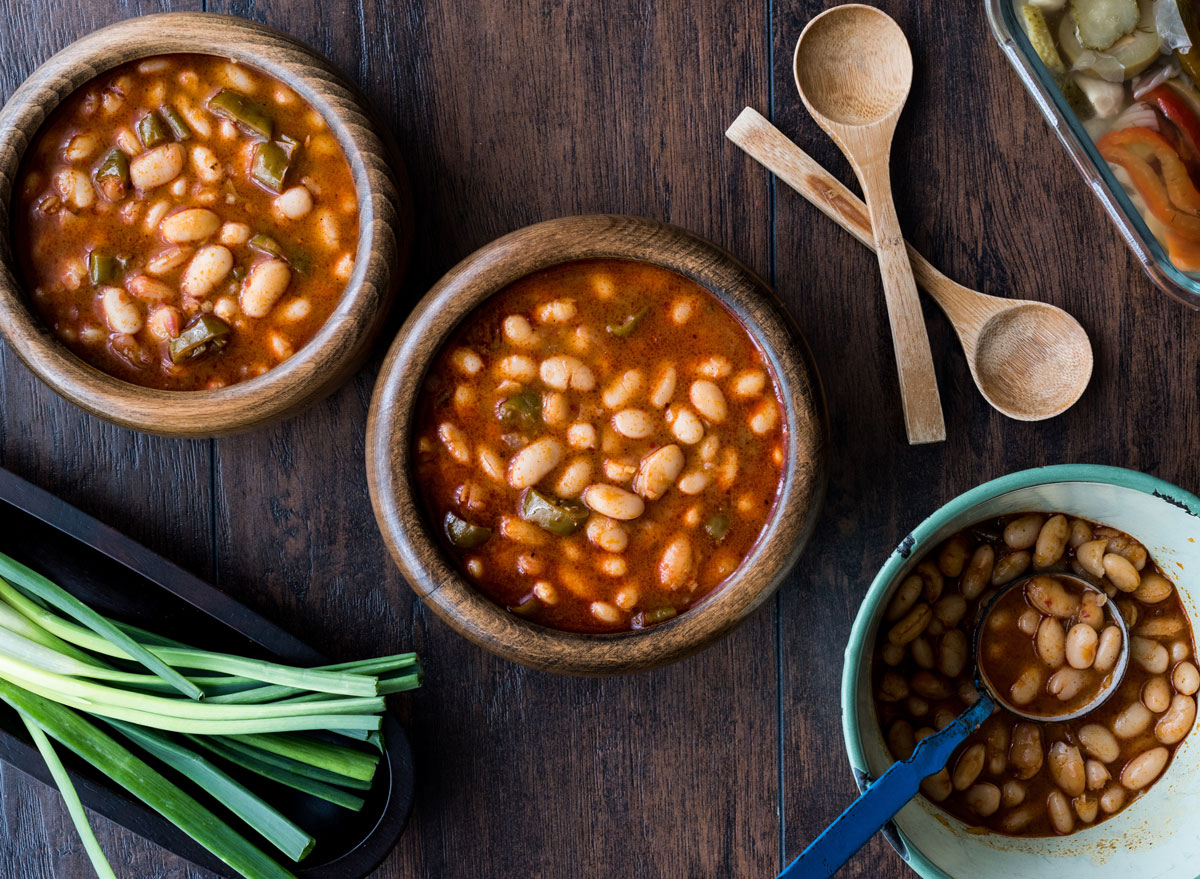
Looking for another reason to regularly pile on the beans? Zive says the soluble fiber in them can help to lower your cholesterol.
The U.S. Department of Health and Human Resources reports that 5 to 10 grams of soluble fiber a day—the amount in 1/2 to 1 1/2 cup of beans, depending on the variety—reduces LDL cholesterol by about 3 to 5%. A 2014 review backs this up: researchers concluded that eating a daily serving of cooked beans (about 3/4 cup) is linked to a 5% reduction in levels of “bad” (LDL) cholesterol.
Additionally, a 2012 analysis of eight studies revealed that people who ate a daily 1-cup serving of non-soy legumes experienced an average 8-point decrease in LDL cholesterol—which Harvard Health notes is better than some people can achieve with prescription cholesterol medication.
Get even more healthy tips straight to your inbox by signing up for our newsletter.
You’ll keep your blood sugar steady—and diabetes at bay.
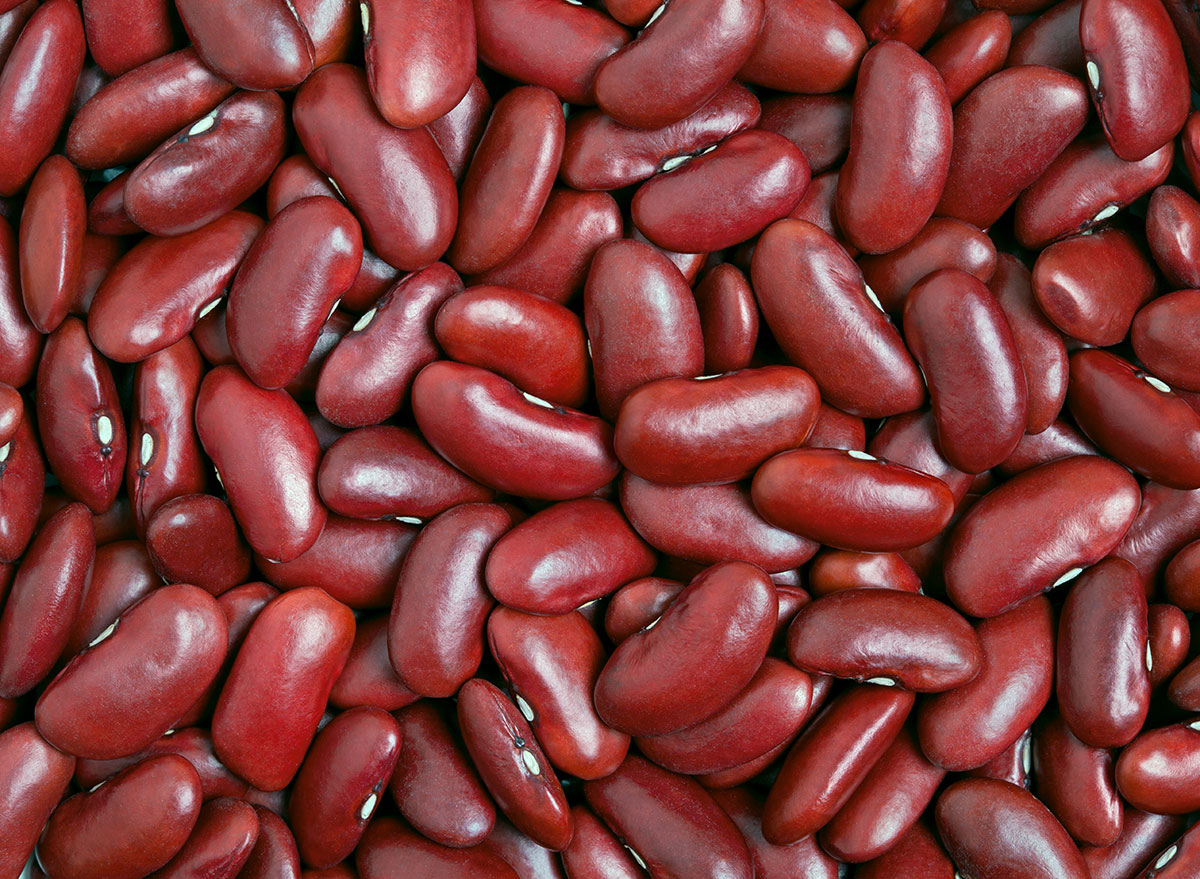
Whether you have diabetes or you’re at risk, it’s high time to pile on the beans. Why? Well, the rich fiber and resistant starch content in these legumes has been shown to help keep your blood sugar steady by causing slower rises as they digest. This is noteworthy given that more dramatic blood sugar spikes can lead to insulin resistance. In fact, a 2012 study in the Archives of Internal Medicine found that when people with type 2 diabetes ate 1 cup of beans daily for three weeks, they were able to maintain lower blood sugar (and blood pressure).
“Black beans are a particularly good source, with about 120 milligrams of magnesium in a single cup,” she adds. “That’s about a third of the recommended daily amount.”
Fun fact: Simply letting your beans cool before eating them increases their resistant starch.
You’ll get a dose of cancer-fighting chemicals.
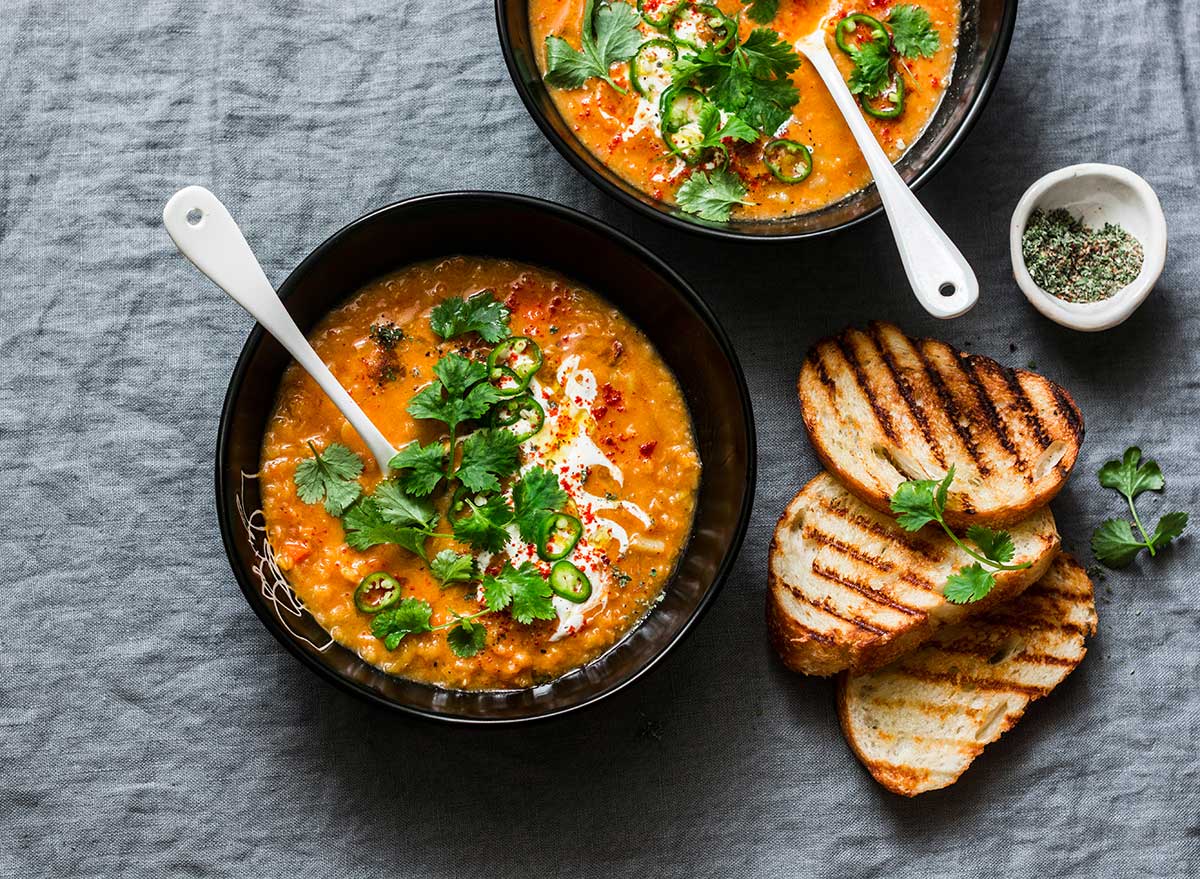
Did you know that beans are a free-radical-fighting powerhouse? That’s because they’re high in plant chemicals known for their antioxidant activity, like isoflavones and phytosterols—which protect your cells from damage that can cause aging and cancer. According to research conducted by the American Chemical Society, black beans have the highest concentration of antioxidants, followed by red, brown, yellow, and white beans, in that order.
And it seems that consuming beans regularly really can have positive long-term health effects. A 2004 study determined that women who ate beans or lentils at least two times a week over the course of eight years were less likely to develop breast cancer than those who only ate them once a month or less.

